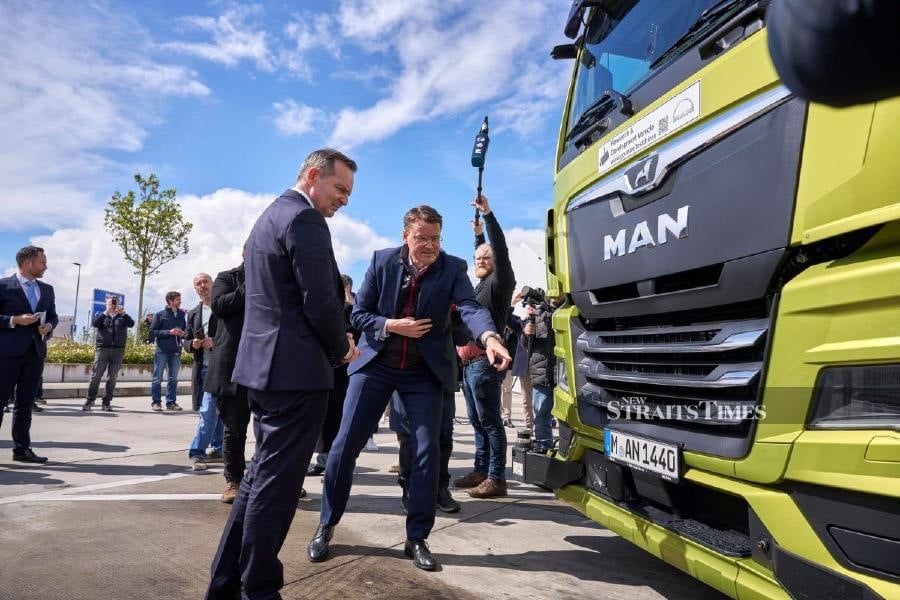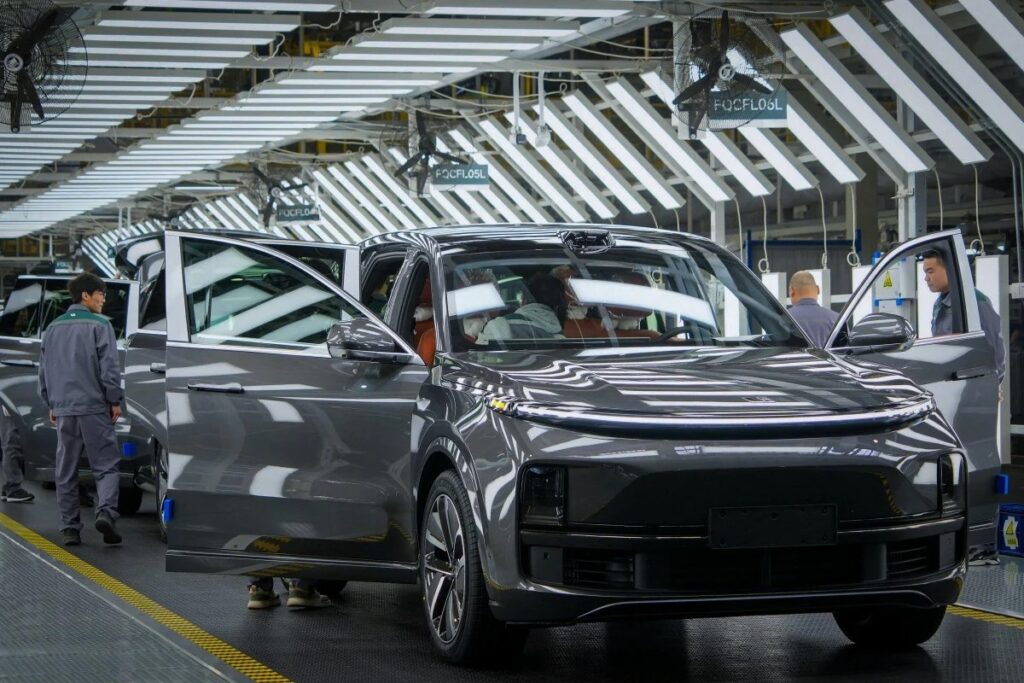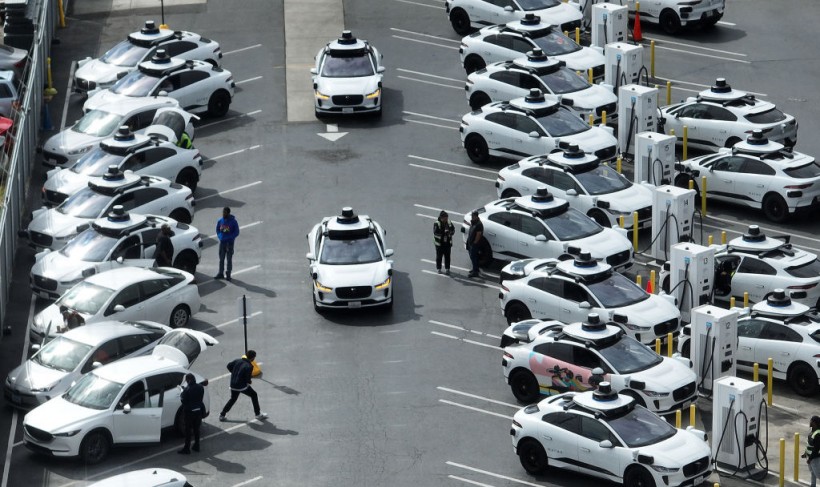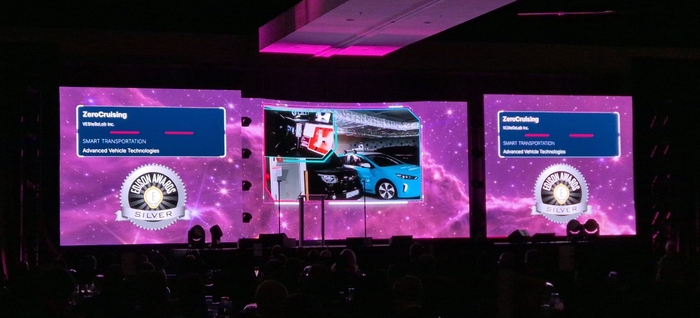
Vueron Newsletter
No. 109
2024.04.23
| MAN: First autonomous truck to operate on German motorway | ||
| Chinese lidar sensor maker Hesai eyes European plant as adoption of technology widens amid falling costs | ||
| Minus Zero, IIIT Hyderabad & IHub-Data to boost self-driving research ecosystem in India | ||
| Vestellalab Wins Silver U.S. Edison Award for Indoor Autonomous Parking |
1. MAN: First autonomous truck to operate on German motorway
- MAN Truck & Bus deploys the first autonomous truck on a German motorway, focusing on logistics hubs and hub-to-hub traffic.
- Recently granted a Level 4 test permit in accordance with German law governing autonomous driving on motorways.
- Anticipates a steady increase in freight volumes and transportation between logistics centers, including major online department shop warehouses.
- Autonomous trucks are deemed suitable for hub-to-hub transport.
Expects a 10 to 15% reduction in overall operating costs and aims to address the driver shortage in Germany. - Plans to initially test prototypes on highways with further hub-to-hub projects scheduled for 2025.
- Collaboration with infrastructure operators like Autobahn GmbH is essential for autonomous driving implementation.
- MAN emphasizes cooperation to realize autonomous driving, highlighting the importance of partnerships.
- Autobahn GmbH actively promotes networking and communication between motorway infrastructure and vehicles for safety.
- Collaboration on the ATLAS-L4 project aims to create autonomous vehicles compliant with Germany’s 2021 autonomous driving law.
- The project involves practical prototype test drives with a safety driver.

MAN’s deployment of autonomous trucks marks a significant step in commercial vehicle autonomy, targeting efficiency and addressing industry challenges. The ATLAS-L4 project reflects efforts to meet legal requirements while advancing autonomous driving technology.
2. Chinese lidar sensor maker Hesai eyes European plant as adoption of technology widens amid falling costs
- Hesai Group, a top lidar sensor manufacturer for smart cars, aims to expand into Europe by making lidar sensors more affordable.
- Considering building plants outside mainland China to capitalize on global automotive industry transition.
- Hesai’s lidars are used by clients like Li Auto and Geely for advanced driver assistance systems and fully autonomous vehicles.
- Released ATX technology enhancing detection range, resolution, and field of view for lidar-based systems.
- ATX can identify environmental conditions like rain, fog, and exhaust fumes, filtering out over 99% of noise.
- Hesai emphasizes making lidars affordable, aiming for wider adoption globally.
- Despite initial skepticism from Tesla’s Elon Musk, lidar market has grown, with costs dropping significantly.
- Hesai targets widespread lidar usage in passenger vehicles, with rising demand expected in China.
- Increased lidar usage is projected to lead to lower prices due to economies of scale and production efficiencies.
- Localizing production in developed markets like Europe is seen as a strategy to avoid potential higher tariffs on Chinese-made EVs.

Hesai’s expansion into Europe reflects its confidence in the growing demand for lidar sensors worldwide. Localizing production in developed markets like Europe serves as a strategic response to potential trade barriers, ensuring market competitiveness.
3. Hyundai, Kia work on revolutionary autonomous indoor delivery serviceFully AI-Powered Autonomous Car Eyed by Japan’s Top AI Developer
- Turing, led by AI developer Issei Yamamoto, aims to create self-driving cars, backed by top Japanese businesses.
- Raised ¥3 billion ($19.4 million) in a seed round, valuing the company at $100 million.
- Japan has fallen behind in self-driving automotive industry despite being home to major manufacturers like Toyota and Honda.
- Turing addresses Japan’s lack of autonomous driving technology with its machine-learning AI model, Heron, with up to 70 billion parameters.
- Plans to produce a completely autonomous vehicle by 2030 and reveal a self-driving car with a minimum 30-minute driving range by 2023.
- Plans to introduce up to 10,000 autonomous vehicles by 2030 and potentially license its model to automakers.
- Working on semiconductors enabling AI in cars, aiming for full production by 2028.

Turing’s initiative signifies Japan’s response to its lag in self-driving technology, aiming to catch up with global advancements. The development of Heron showcases a shift towards machine-learning AI models, emphasizing independent learning for enhanced autonomy.
4. Minus Zero, IIIT Hyderabad & IHub-Data to boost self-driving research ecosystem in India
- Minus Zero, a startup focused on autonomous driving technology, has forged a partnership with IIIT-H and I-Hub Data in India to propel research efforts in the field.
- Together, they are set to delve into research areas such as foundational models, computer vision, and AD simulators, with a primary goal of building a robust dataset of Indian roads. This dataset will serve as a crucial resource for training and validating AI models used in Advanced Driver Assistance Systems (ADAS) and Autonomous Driving (AD).
- Minus Zero has already showcased its autonomous driving capabilities through its ‘zPod’ vehicle and has garnered support from notable investors like Chiratae Ventures since its establishment in 2021.

Collaboration between Minus Zero, IIIT-H, and I-Hub Data underscores the importance of combining industry expertise with academic research to drive innovation in autonomous driving technology. The development of a comprehensive dataset tailored to Indian road conditions is crucial for the successful deployment of autonomous vehicles in the country.
5. Vestellalab Wins Silver U.S. Edison Award for Indoor Autonomous Parking
- Vestellalab wins Silver Award at the 2024 Edison Awards for ZeroCruising driverless valet parking solution.
- ZeroCruising guides autonomous vehicles in GPS shadow areas using advanced technologies.
- Recognition at the Edison Awards highlights Vestela Labs’ innovative approach to urban mobility challenges.
- Significant advancements in autonomous vehicle technology are showcased through ZeroCruising’s capabilitiesaVestela Labs’ ZeroCruising driverless valet parking solution was honored with a Silver Award at the prestigious 2024 Edison Awards.
- Acknowledging its remarkable capability to guide autonomous vehicles seamlessly even in challenging GPS shadow areas through the integration of cutting-edge technologies, a testament not only to the company’s commitment tod innovation but also to its dedication in addressing complex urban mobility challenges, thus underscoring the profound advancements made in the field of autonomous vehicle technology.

The award is a global recognition of Vestellalabs’ innovative approach to solving urban mobility challenges and highlights the significant advances in autonomous vehicle technology.
*Contents above are the opinion of ChatGPT, not an individual nor company

